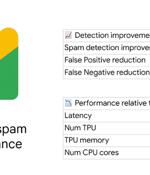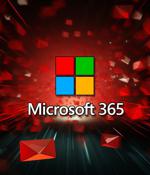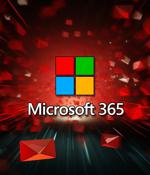Security News

A new Python project called 'Wall of Flippers' detects Bluetooth spam attacks launched by Flipper Zero and Android devices. The ability to launch Bluetooth LE spam attacks using the Flipper Zero portable wireless pen-testing and hacking tool was first demonstrated in September 2023 by security researcher 'Techryptic.

Attackers are compromising high-privilege Microsoft accounts and abusing OAuth applications to launch a variety of financially-motivated attacks. Microsoft Threat Intelligence has observed a number of attacks that started with attackers compromising poorly secured accounts that have permissions to create, modify, and grant high privileges to OAuth applications.

Google has revealed a new multilingual text vectorizer called RETVec (short for Resilient and Efficient Text Vectorizer) to help detect potentially harmful content such as spam and malicious...

Recent Flipper Zero Bluetooth spam attacks have now been ported to an Android app, allowing a much larger number of devices to implement these annoying spam alerts. Inspired by previous research on the topic and Flipper Zero applets targeting iOS devices, and later Android and Windows, software developer Simon Dankelmann developed an Android app capable of the same Bluetooth spam.

A custom Flipper Zero firmware called 'Xtreme' has added a new feature to perform Bluetooth spam attacks on Android and Windows devices. The main idea behind the spam attack is to use Flipper Zero's wireless communication capabilities to spoof advertising packets and transmit them to devices in range of pairing and connection requests.

Microsoft has disabled a bad anti-spam rule flooding Microsoft 365 admins' inboxes with blind carbon copies of outbound emails mistakenly flagged as spam. This false positive issue affected Exchange Online users worldwide, with many reports saying that all emails sent to external addresses were being tagged as spam.

Microsoft is investigating Exchange Online mail delivery issues causing "Server busy" errors and delays when receiving emails from outside organizations. According to user reports online, the Exchange Online problems started this morning, affecting Microsoft 365 customers worldwide, across the Americas, Europe, and Asia.

Microsoft 365 email senders were warned by Microsoft this week to authenticate outbound messages, a move prompted by Google's recent announcement of stricter anti-spam rules for bulk senders. "By setting up email authentication for your domain, you can ensure that your messages are less likely to be rejected or marked as spam by email providers like Gmail, Yahoo, AOL, Outlook.com," the Microsoft Defender for Office 365 team said.

To keep Gmail users' inboxes "Safer and more spam-free", Google is introducing new requirements for bulk senders. "Last year we started requiring that emails sent to a Gmail address must have some form of authentication. And we've seen the number of unauthenticated messages Gmail users receive plummet by 75%, which has helped declutter inboxes while blocking billions of malicious messages with higher precision," said Neil Kumaran, group product manager, Gmail Security & Trust.

The Flipper Zero portable wireless pen-testing and hacking tool can be used to aggressively spam Bluetooth connection messages at Apple iOS devices, such as iPhones and iPads. Apple devices supporting Bluetooth Low Energy technology utilize advertising packets to announce their presence to other devices.